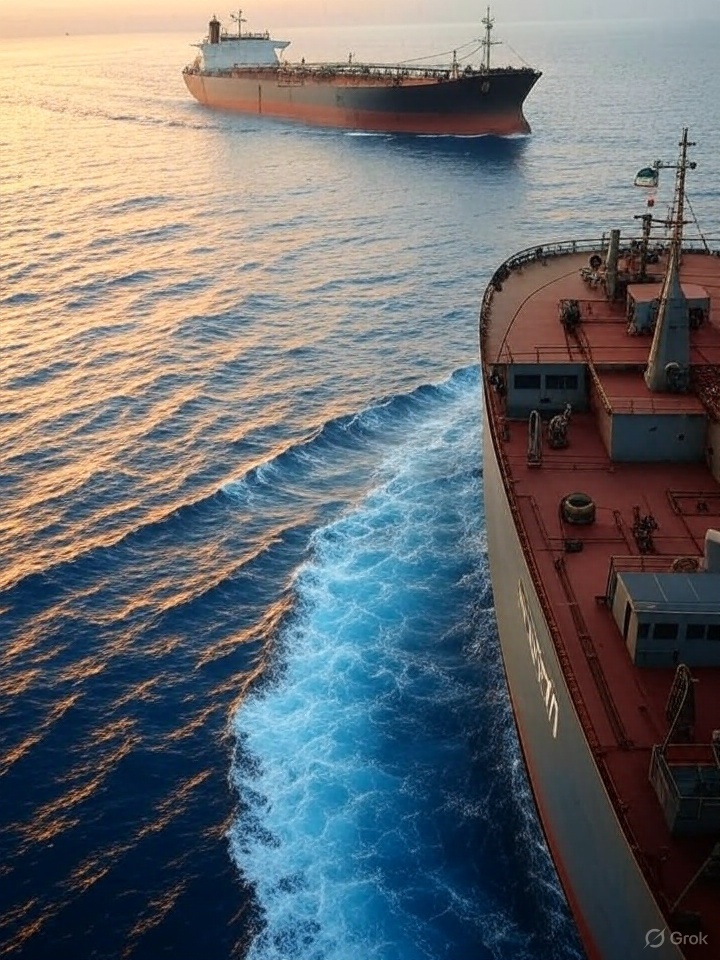In a move that has heightened tensions in one of the world’s most critical energy corridors, Iranian authorities have seized a foreign oil tanker in the Gulf of Oman on suspicion of fuel smuggling. The incident, announced by the Chief Justice of Hormozgan Province, involves the confiscation of a vessel allegedly carrying 2 million liters of smuggled fuel, along with the arrest of its 17 crew members, including the captain. This seizure comes amid escalating geopolitical frictions in the region, following recent U.S. military actions against Iranian nuclear facilities and Iran’s threats to disrupt global oil flows.
Details of the Seizure
According to reports from Iranian state media and international outlets, the tanker was intercepted in the waters of the Gulf of Oman, a strategic body of water adjacent to the Strait of Hormuz. Iranian security forces boarded the vessel after detecting irregularities in its cargo documentation, leading to the discovery of the purportedly illicit fuel load. The operation was described as part of ongoing efforts to combat fuel smuggling, a tactic Iran claims is used to undermine its economy amid Western sanctions.
Specifics about the tanker’s identity remain scarce: no official name, flag, or ownership details have been disclosed by Iranian officials. However, the crew has been detained and is facing charges, with the vessel now under Iranian custody. This lack of transparency is not uncommon in such incidents, where Iran often withholds information to control the narrative.
The event echoes previous seizures; for instance, in March 2025, Iranian forces intercepted two vessels carrying a combined 3 million liters of diesel fuel in similar operations. These actions highlight Iran’s vigilance—or, as critics argue, its aggressive posturing—in policing its coastal waters.
Potential Supply Disruptions
While the seized tanker itself carried a relatively modest volume of fuel—equivalent to about 12,580 barrels—the incident raises broader concerns about disruptions to global energy supplies. The Gulf of Oman serves as a gateway to the Strait of Hormuz, through which approximately 21 million barrels of oil per day transit, accounting for roughly 20% of the world’s daily oil consumption.
Any escalation could lead to immediate market reactions, including spikes in oil prices due to heightened risk premiums. Insurance costs for tankers navigating the region have already risen in recent months following U.S. strikes on Iranian sites at Fordow, Natanz, and Isfahan in late June. Traders might opt for rerouting shipments around Africa via the Cape of Good Hope, adding weeks to transit times and increasing freight costs by up to 30-40%. In a worst-case scenario, if Iran follows through on its parliamentary vote to authorize closing the Strait—though it has not yet done so—global oil supplies could face severe bottlenecks, potentially pushing Brent crude prices above $100 per barrel and exacerbating inflationary pressures worldwide.
Geopolitical Ramifications: Choke Points and the Dark Fleet
This seizure underscores the precarious geopolitics surrounding maritime choke points like the Strait of Hormuz, where a single actor can wield disproportionate influence over global trade. Iran has long leveraged its position to respond to international pressures, including sanctions imposed over its nuclear program and regional activities. The recent U.S. bombings, which targeted key nuclear infrastructure, have prompted Iran to signal its readiness for retaliation, including through maritime disruptions. Critics, including some Western analysts, view these seizures as acts of state-sponsored piracy, further straining relations with the U.S., UK, and Israel.
Compounding these issues is the role of the “dark fleet”—a shadowy network of aging, often uninsured tankers used by sanctioned nations like Iran, Russia, and Venezuela to evade export restrictions. These vessels frequently operate with deactivated transponders, falsified documents, and substandard safety measures, posing environmental and navigational hazards. Iran itself relies heavily on this fleet to export its oil, primarily to buyers like China, circumventing U.S. sanctions and generating vital revenue.
The ramifications are multifaceted. For one, increased seizures could deter legitimate shipping, inflate energy costs, and contribute to supply chain volatility. Environmentally, the dark fleet’s poor maintenance raises the risk of oil spills in sensitive areas like the Persian Gulf, which could devastate marine ecosystems and fisheries. Geopolitically, it invites countermeasures: the U.S. and its allies might ramp up naval patrols or impose secondary sanctions on dark fleet operators, potentially sparking a cycle of escalation. In the context of ongoing Israel-Iran proxy conflicts, such incidents could broaden into wider confrontations, affecting not just oil but also LNG and other commodities transiting the region.
Outlook for Energy Markets
As energy markets digest this development, Brent crude futures have already ticked upward by 1.5% in early trading, reflecting investor unease. Stakeholders, from OPEC producers to major importers like Europe and Asia, must remain vigilant. While this seizure may not immediately halt flows, it serves as a stark reminder of the fragility of global energy security amid persistent Middle Eastern tensions.
Energy News Beat will continue monitoring the situation for updates. For now, the incident reinforces the need for diversified supply chains and robust diplomatic efforts to de-escalate choke point risks.

